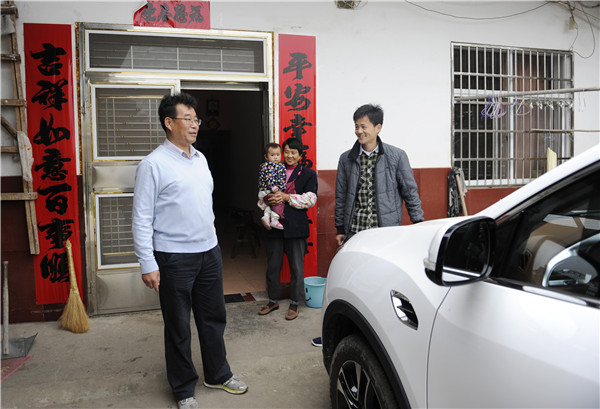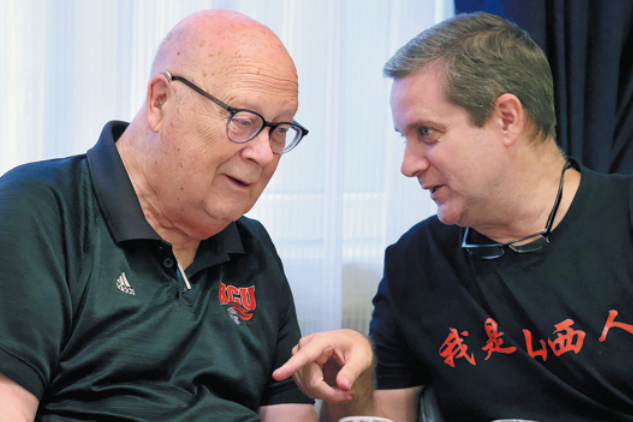Official embraces poverty relief in remote community
China Daily | Updated: 2018-04-18 09:12

HEFEI - When 54-year-old official Li Chuanxi first told his wife last year that he had volunteered to become a poverty relief worker in a remote rural village, she answered casually without taking her eyes off the TV.
The next day, learning that Li really meant it, she lost her temper.
"My friends said that I must be insane," Li said. "You are no longer young and you've got all you want, they told me. Why go to this trouble?"
Their doubts made sense. For Li, a city-level official who once had a comfortable office in the provincial capital of Hefei, Anhui province, the shift to an impoverished village seemed a demotion.
"I just wanted to figure out myself what exactly was the crux of the matter in China's fight against poverty," Li said.
In April last year, Li led a three-member poverty relief team and arrived at Sige, a mountainous village more than 200 kilometers from Li's home in Hefei. The village is located in Wangjiang county, which is recognized as being in "dire poverty".
The first thing they did in the village was visit every household to find out the specific reasons for their poverty.
"During one visit, we saw a villager almost dying of illness and hunger in his home," said Zhou Qing, Li's colleague in the Anhui Provincial Committee of the Communist Party of China and a member of the anti-poverty team.
"However, we also found some people who simply wanted to keep the 'poverty' label, because they believed that receiving regular government subsidies implied a sound connection with the government."
In each case, Li approached the poverty reduction policies with great patience, Zhou said.
Li used hard work and his previous experience to aid rural development in the village. He encouraged villagers to plant walnuts and pitayas, a cactus species native to the Americas, and to participate in the village's photovoltaic power project to increase incomes.
Also, while inspecting every corner of the village, Li found a piece of wasteland located across from a main traffic artery. A billboard was later set up on the land, bringing an additional 50,000 yuan ($7,900) of advertising revenue annually to the village.
He called on more than 60 CPC members in the village to take the lead in shaking off poverty and helping others. Two months after Li's arrival, he held a CPC meeting in which he asked each Party member in the village to talk about their original aspirations when they joined the Party.
"To my surprise, their answers were very simple and sincere. Some said they joined the Party just out of the will to work a little longer, carry a little heavier and contribute a little more to the village than others," Li said. "I was deeply touched."
Thereafter, Li took the opportunities present by the activities of the village CPC organization to communicate the spirit of the CPC Central Committee's major documents, decisions and policies regarding poverty alleviation and the rural revitalization strategy.
He also stressed the importance of Party building and warned CPC members to observe the Party's code of conduct and oppose corruption.
He called on CPC members to put a small plaque on the gates of their homes to show their CPC membership so that the public would know that CPC members will always be the ones they can turn to when facing problems.
Thanks to Li's work, a total of 167 households were lifted out of poverty last year at Sige, and there are no more than 20 left.
Xinhua
























